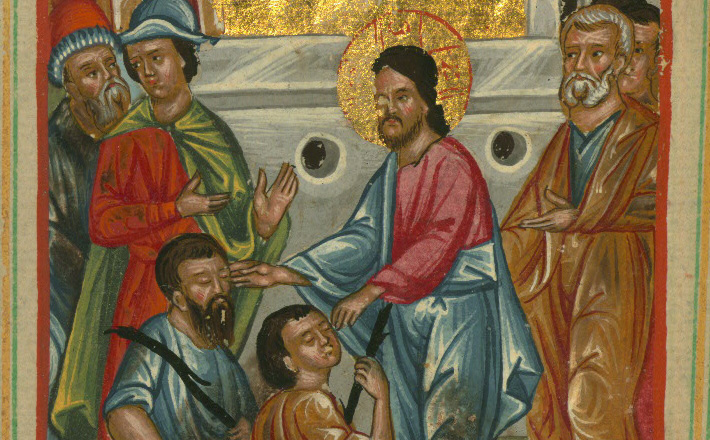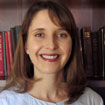Commentary on Ephesians 5:8-14
Like many authors in the first-century world, Paul often trades in opposites: Sin and Righteousness, Death and Life, Light and Darkness.
Ephesians 5:8-14 focuses upon the last pair where Paul reminds the Ephesians of the radical transformation they’ve undergone, and the subsequent radical life that transformation demands.
A Bright Identity
To begin reading in verse 8 is to pick up in the midst of Paul’s thought. Since verse 3, he has been talking about the habits of life they should not practice — impurity, greed, course speech — and harshly reminding them those whose lives are characterized by such things do not have an inheritance from God but instead an expectation of God’s wrath. Do not, Paul says, be fellow participants with people who do such things. This is the background that leads to his dualistic statement in verse 8 about darkness and light. It is rather striking in its succinct comprehensiveness: formerly, you were darkness, and now (understood “you are”) light. Not that they are in darkness or light, but these descriptors are fitting to their very identity.
The Light Family
The transformation happens because now they are “in the Lord.” Since Christ is a source of light — he is the one who shines upon them (Ephesians 5:14) — and they are now in him, it follows that they can now be called children of light. This is closely related to the earlier statement in verse 1 that they should imitate God because they are in his family.
Stephen Colbert, the over-the-top media personality character of The Colbert Report in an interview with Bart Ehrman, a New Testament scholar who expressed doubts about Jesus’ divinity queried, “What is the son of a duck?” The answer being, of course, a duck. Paul is drawing a similarly obvious familial connection here. If they are in the Lord, they are children of God and children of light. Light is the nature of their identity, and that should determine how they walk about (peripatew) — in other words, how they live, what they think, feel, say, and do.
Fruit of the Light
Paul lists several aspects of this way of living, and he describes them as the “fruit of the light,” an intriguing mixed metaphor many scribes replace with the more familiar “fruit of the spirit,” but the unusual reading is in all likelihood the original. Paul imagines the reality of being light issuing forth in the fruit of goodness (a quality he connects to the Christian life in several of his letters: Romans 15:14; Galatians 5:22; 2 Thessalonians 1:11), righteousness (one of his favorite and most important theological terms), and truth (frequently associated with the life of and in God).
Even Paul recognizes the intangible quality of such lofty ideals, for he follows this list with the affirmation that the person who is light will need to test out what is pleasing to the Lord. In other words, “What is goodness, righteousness, and truth?” are not simple questions. They must be discerned with the aids God has provided: the Spirit, the Scriptures, and the Church.
Non-Fruit of Darkness
The mixed metaphor works on the other side as well: darkness produces unfruitful works. It is not simply the case that darkness produces no fruit, but even more dangerously it produces works that are the antithesis of fruit. In this instance, there exists not simply the absence of the good but the presence of the corrupt. Paul instructs the Ephesians not to fellowship with such things.
In addition to avoiding unfruitfulness, Paul asks his readers to reprove — to speak against — such works. His is not an instruction for passive avoidance, but for active critique. This action might be one way in which Paul envisions the fruit of goodness, righteousness, and especially truth becoming ripe. To speak against the non-fruit is, itself, a demonstration of healthy fruit.
The group Paul has categorized as darkness, whose work produces non-fruit, does things in secret which are so shameful they are that-which-cannot-be-named. When the people who are light reprove these things they move out from under the cover of secrecy and darkness into the state of revelation. Back-room deals that result in oppression, any kind of exploitation, or deeds that result in shame come to light when they are reproved.
Christ is Shining
In a fascinating turn, then, Paul declares that everything which has been revealed (everything which has been named in reproof) is now light. The transformation of verse 8 is repeated. Darkness is now light. I can’t help but see a redemptive possibility here. If the people of the light expose the deeds of those in darkness, that reproof can result in those people’s transformation. Paul’s citation of a poem (from where this citation comes, scholars do not know), makes it more likely that salvation is in fact in view.
Beautifully captured in Bach’s cantata 140, Wachet Auf , a voice has called the sleepers (and most people sleep in the dark) to rise, and, even more, the same voice has called those who are among the dead to resurrect. As the closing line of the poem declares, the chief one to reprove, to expose, the falsity of belief and the deeds of unrighteousness (think of Jesus’ exacting critiques in the gospels of both disciples and opponents), Christ himself is turning his light on them.
Because the light of Christ has come, the Ephesians have been radically transformed, and they have a call, a responsibility, to usher in the shining of his light upon others so they too can be transformed. Moving into the light brings initial pain to the eyes, and the cultivation of fruit takes effort, but the transition is worth it. For who would not relinquish the secret and shameful darkness of death in order to walk in the light as children of the God of light?


March 26, 2017